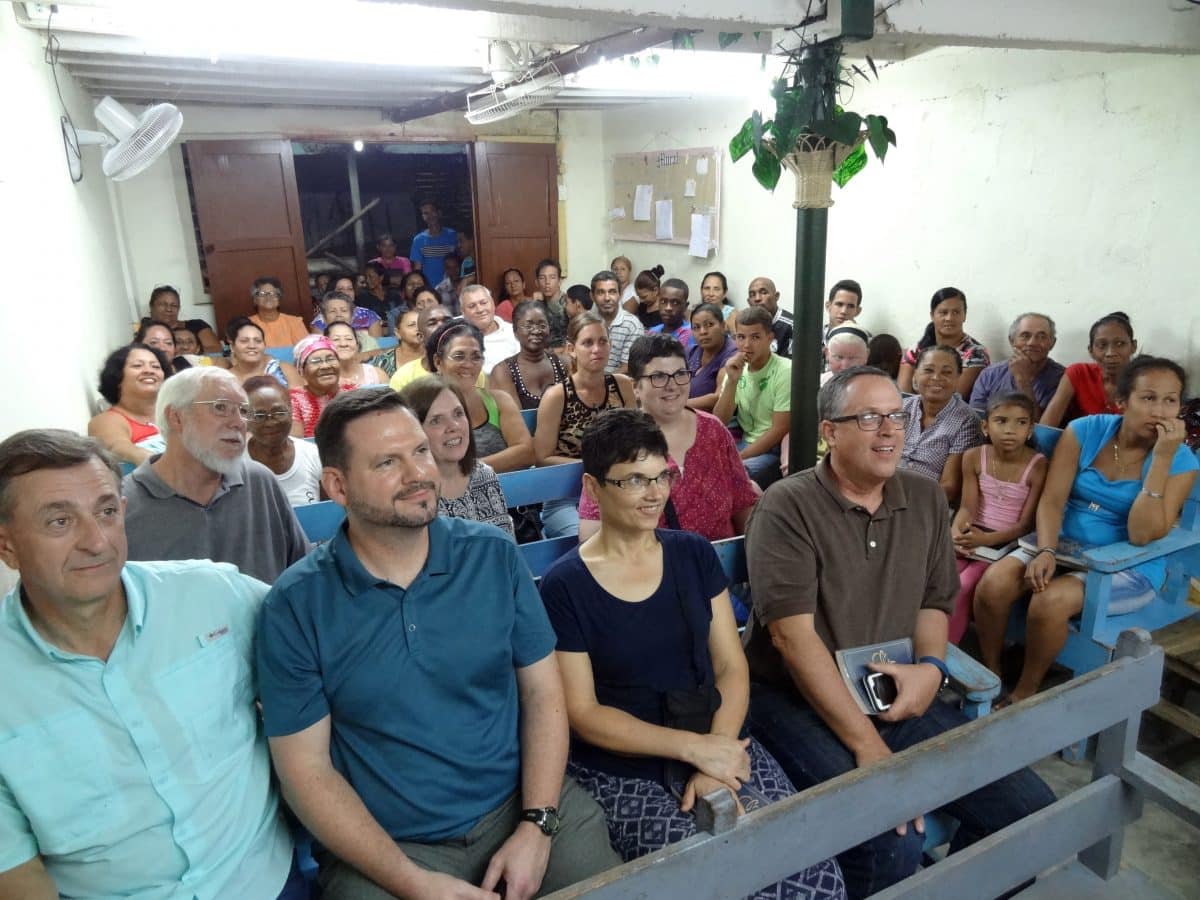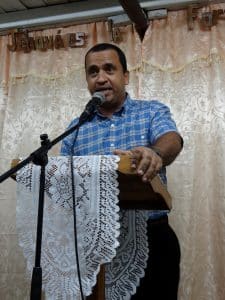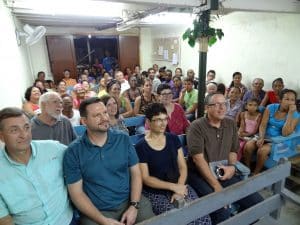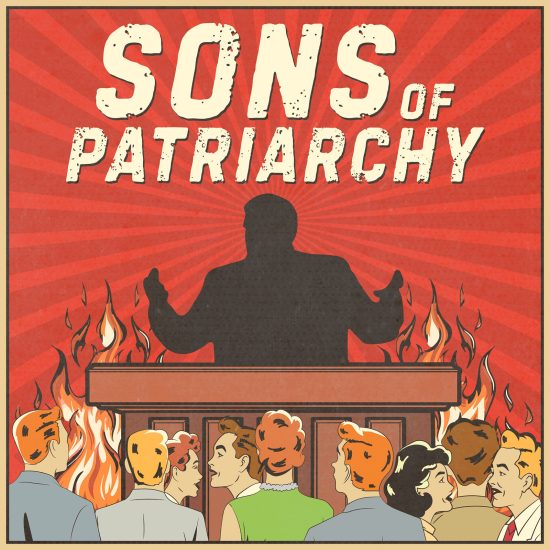
As the coronavirus pandemic spread across the world, numerous governments responded by shutting down borders and ending international flights to prevent infected persons from arriving. These actions left many people suddenly stranded, seeking alternative ways home that often involved specially-arranged flights by their governments. For a Cuban Baptist pastor, this meant his quest to overcome international political squabbles left him and his wife stranded for days in Guyana by coronavirus travel closures.
As of April 8, more than 1.5 million people globally have been infected with the COVID-19 respiratory disease caused by coronavirus, and more than 87,000 have died. In Cuba, 457 people have tested positive and 12 have died. While the U.S. — where more than 445,000 have tested positive and more than 14,000 have died — has more than 1,300 cases per million people, Cuba has only 30 per million. And while the death rate in the U.S. is 44 per million, in Cuba only 1 person per million have died. Many Cuban doctors have been sent to several highly-impacted nations to help with overwhelmed hospital systems.

Joey Hernandez preaches at Sexta Iglesia Bautista (Sixth Baptist Church) in Santiago de Cuba in 2017. (Brian Kaylor/Word&Way)
For Joey Hernandez Guilarte, pastor of Sexta Iglesia Bautista (Sixth Baptist Church) in Santiago de Cuba, the impact of coronavirus in March meant more than just health concerns or the cancellation of various events. Rather, for Hernández and his wife, Nora, coronavirus meant three days in the South American nation of Guyana, unsure if they could return home to their children and church.
But the story actually starts years before the discovery last year of the new strain of coronavirus.
In December 2014, then-U.S. President Barak Obama announced a significant shift in U.S.-Cuban relations that reestablished diplomatic relations and eased rules for travel between the countries, which helped cooperation between religious groups in the neighboring nations as they could more easily visit one another in person.
However, after Donald Trump moved into the White House in 2017, he rolled back many of Obama’s changes to U.S.-Cuban policies. After re-imposing some travel restrictions in June of 2017 — including ones that added additional expenses and difficulties for church groups — he added more restrictions in November of that year that included the U.S. Embassy in Havana no longer processing visas for Cubans seeking to visit the United States. That change meant Cubans would have to travel to another country first to visit a U.S. embassy to apply for a visa to later travel to the U.S.
Hernandez, a pastor in Cuba’s second-largest city, had traveled to the U.S. in 2017 just before Trump started undoing Obama’s policies. He made plans months ago to return this year for his second U.S. visit. He planned to speak at Churchnet spring gathering on April 24 at First Baptist Church in Lee’s Summit, Missouri — a congregation that partners with his own and has sent multiple teams to Cuba to work with his church. However, because of the politics between the U.S. and Cuba, he and his wife, who hoped to travel to the U.S. for the first time, had to first find funds to travel to another country.
Hernandez told Word&Way it “was a very difficult time” for them to travel to seek a visa. The couple first flew to Havana, on the other side of the island. After two days in the Cuban capital, they could travel to Guyana, a small country just north of Brazil they hadn’t previously visited. They left Cuba as news of coronavirus was starting to gain international headlines, but mostly in Asia and Italy.
Two days later after their flight, they went to the U.S. Embassy in Georgetown, Guyana, for their scheduled visa application interview. Joey found his application approved, but embassy officials rejected Nora’s application without explanation.
After a few more days in Guyana, they planned to return to Cuba on March 19. However, they learned on March 18 that the airport would close at midnight, thus canceling their 2.30 a.m. flight scheduled for just after that shutdown marker set by Guyana to stop all international passenger flights in or out of the country for two weeks to prevent more cases of coronavirus. Guyaana now has only 37 cases and six deaths, though that makes it more common than in Cuba since those numbers mean 47 people per million have been infected and eight per million have died.
Hernandez and his wife returned to their hotel, concerned about how long they would remain there and how they would afford the extra days of food and lodging. The next day, they heard news the Cuban government would send a plane to rescue them and other Cubans in Guyana, but it didn’t occur that day.
Undaunted, Hernandez did what he knows best: He talked to people about Jesus.
“We said, ‘Lord, what do you want with us here in Guyana?” Hernandez reflected.
So, they returned to the hotel they had stayed at and where Hernandez had already witnessed to some other guests. He resumed that evangelism.
“That was amazing to come back to the hotel again, to the people,” he added. “What the Lord did there inside that hotel was so awesome.”
He also recounted meeting a cab driver and learning during the ride that the man was a deacon at a local church. So, Hernandez talked the man into taking him to visit the church, and from that Hernandez was invited to preach there. And that, he added, opened connections for him to start planning his second trip to Guyana — next year, not for diplomatic paperwork but for a mission trip.
After another two days, on March 22, they finally looked down from the plane as Guyana lay behind them. But even then, the journey wasn’t over. Unable to catch a flight from Havana back to the other side of the island, Hernandez said they instead had to ride a crowded “very uncomfortable bus” for the 19-hour bumpy ride across Cuba.
Yet, even once home, coronavirus kept changing his plans. He had to close the church building, which is about the size of a home and is usually packed and overflowing out into the alley. But, he added with a chuckle, “we opened about 100 churches in the neighborhood” as the worship time continues in homes. And he sees unbelievers in the neighborhood more open to God now.
“It really is awesome how God is working in this time,” he added.

An overflow crowd listens during a sermon by Joey Hernandez at Sexta Iglesia Bautista (Sixth Baptist Church) in Santiago de Cuba in 2017. (Brian Kaylor/Word&Way)
So, Hernandez is now home — and he’ll be staying there for some time. The Churchnet meeting he planned to attend is now a virtual event. And even if it wasn’t, he wouldn’t be able to travel because of coronavirus. But despite that, he doesn’t consider it a waste to have traveled to Guyana for a U.S. visa he now can’t use.
“We were praying before going there [for God] to send us to the nations,” he explained. “What we saw in this … was that God wanted me to go to Guyana to open another door for a future mission trip to Guyana. That’s what we saw. And also, the life of a few people in Guyana, they changed while we were there. And we saw that was God’s plan, too. So, it was amazing.”
Like Hernandez, other Cuban Baptists are facing the threat of coronavirus, though it hasn’t yet reached a significant level. Josué Rodríguez Legrá, president of the Convención Bautista de Cuba Oriental (Baptist Convention of Eastern Cuba) and pastor at 1ra Iglesia Bautista (1st Baptist Church) in Palma Soriano, told Word&Way that while they haven’t seen much of an impact yet, they were taking steps to avoid spreading coronavirus.
“We are taking preventive measures and have suspended all convention events that need movement and crowds of people,” he said. “We are in communication with our convention leadership and our pastors for any measure to be implemented.”
According to the Baptist World Alliance, there are more than 800 Baptist churches in Cuba with more than 58,000 members. But these numbers don’t fully capture the hundreds of mission gatherings in houses that help Baptists reach more people while still following the government’s restrictions on churches. Together, the Baptist conventions make Baptists the largest Protestant tradition on the island, but overall Protestants are just about five percent of the population.
 NOTE: Hear more about this story from Hernandez in the latest episode of the award-winning Word&Way podcast “Baptist Without An Adjective.”
NOTE: Hear more about this story from Hernandez in the latest episode of the award-winning Word&Way podcast “Baptist Without An Adjective.”






